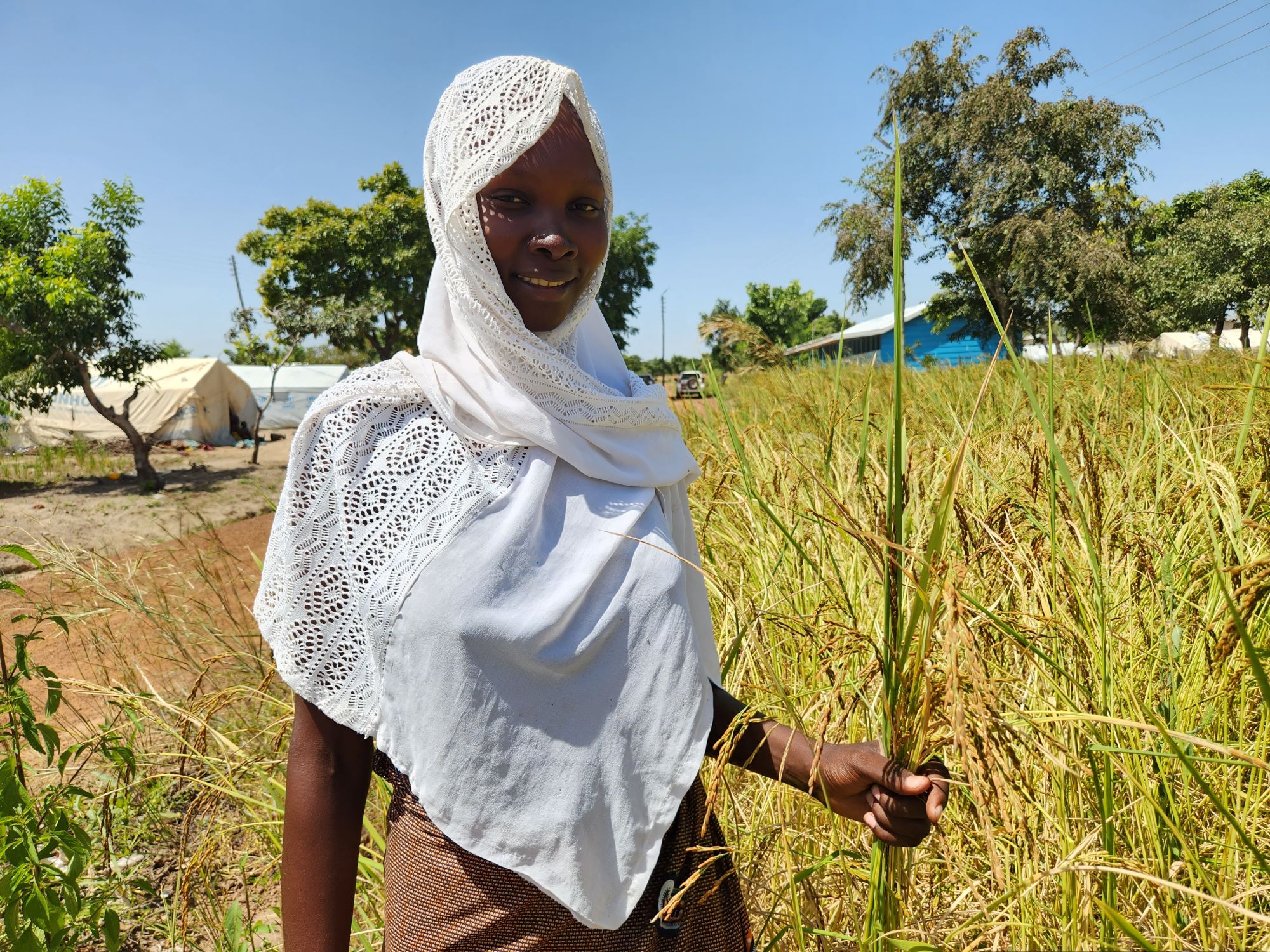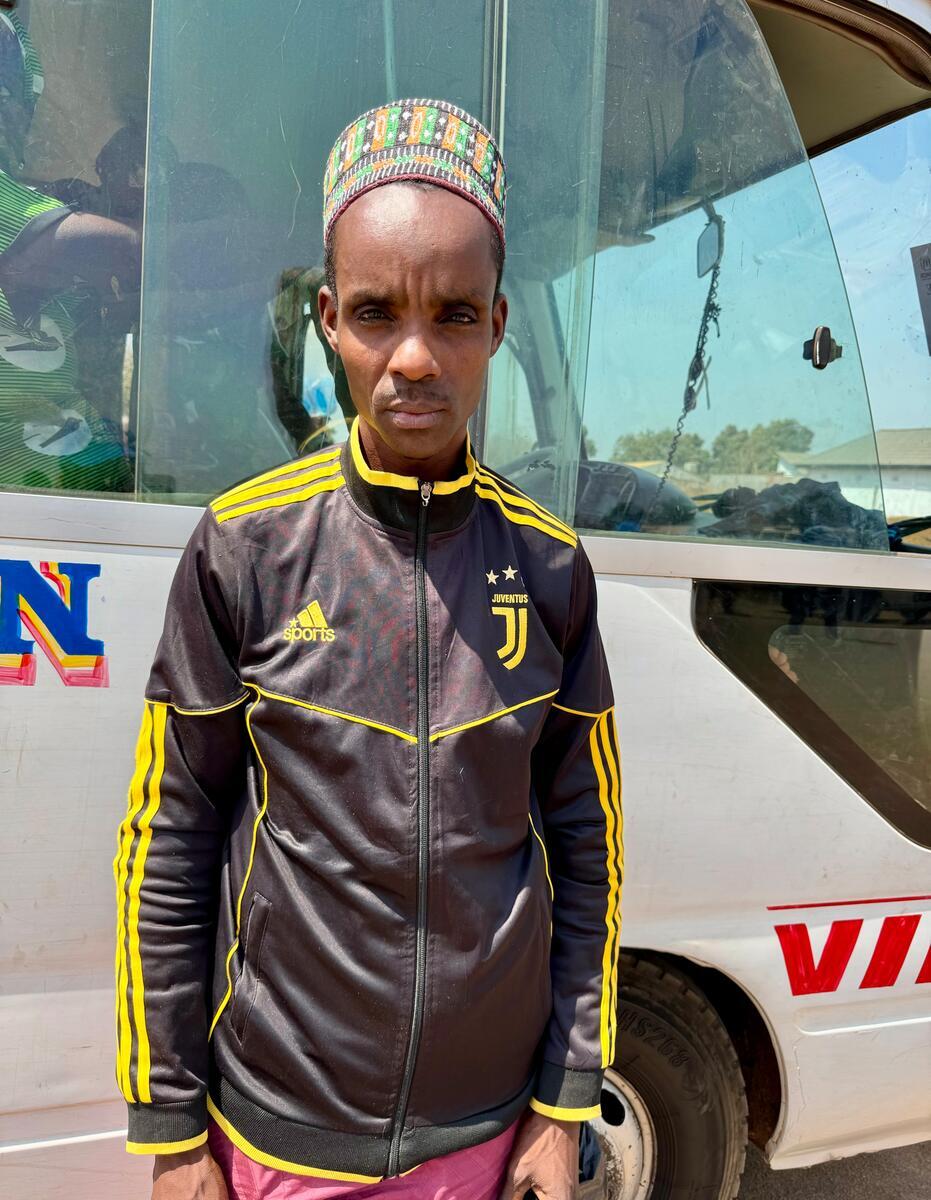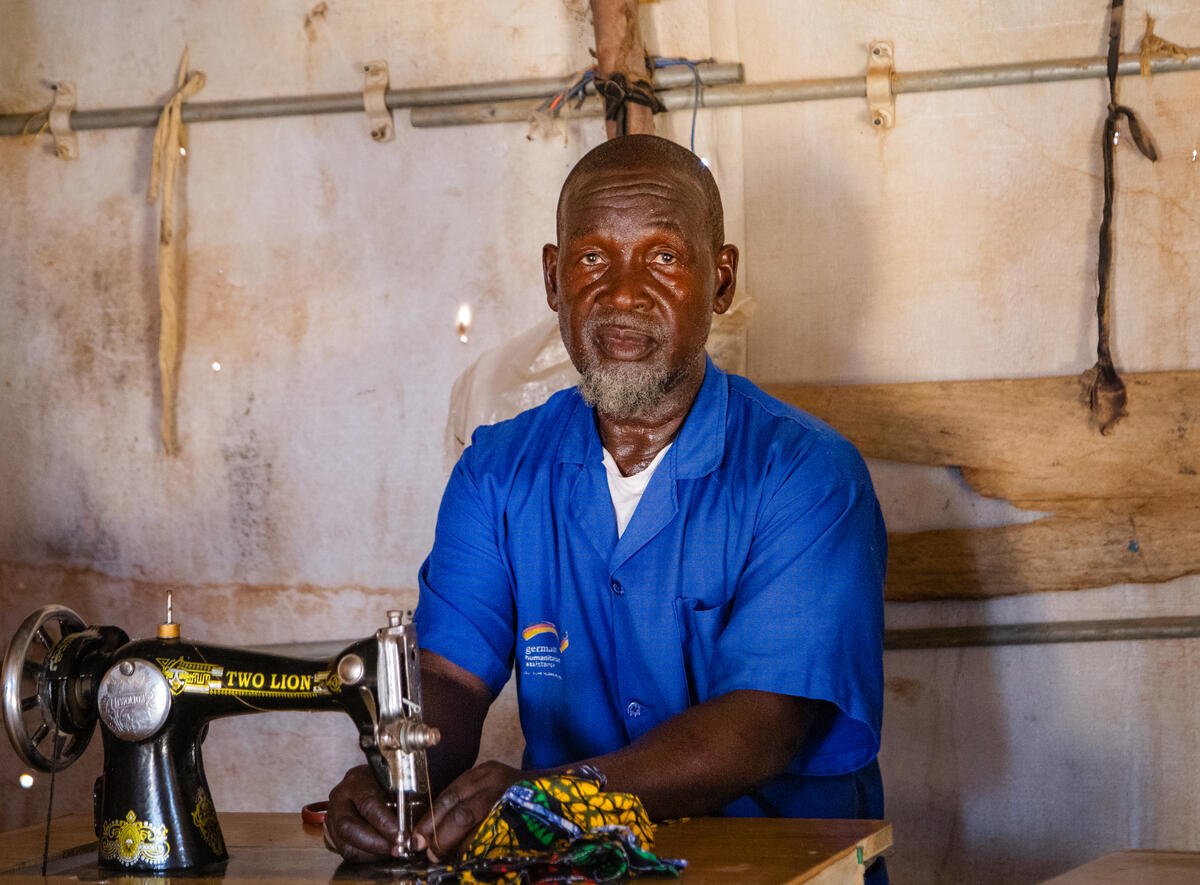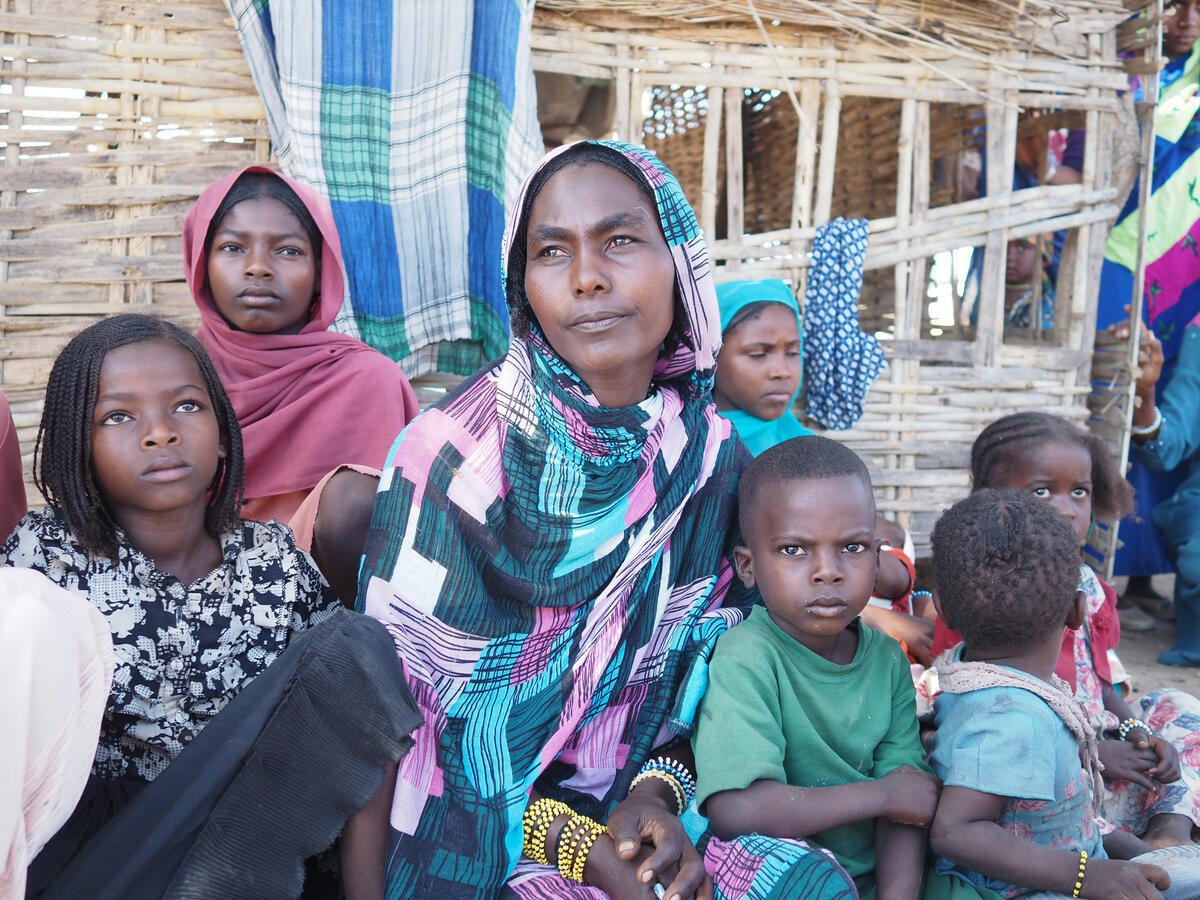Africa-led private sector solutions for Africa’s forced displacement
Africa-led private sector solutions for Africa’s forced displacement
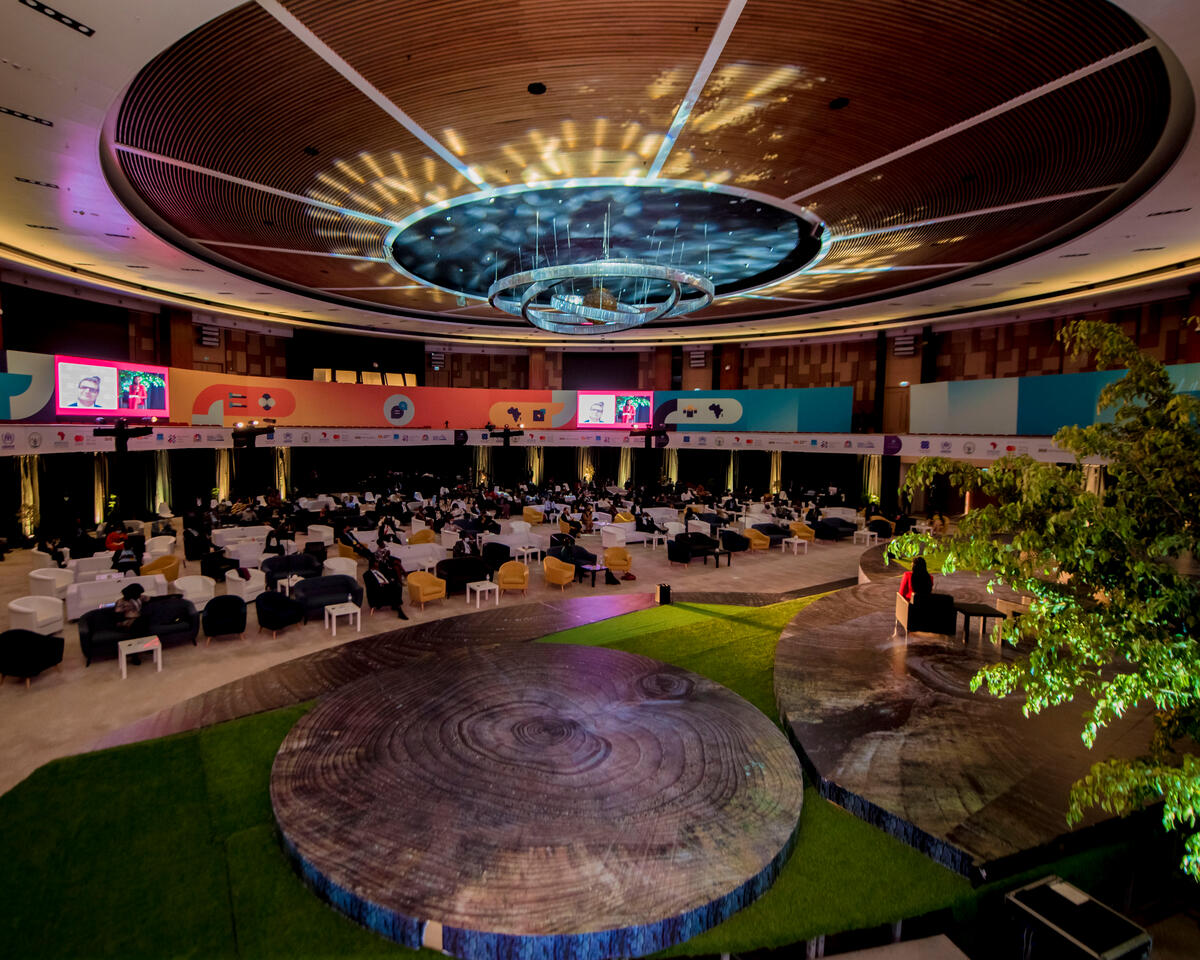
In 2021, the first-ever Forum convening Africa’s private sector leaders to help identify solutions to Africa’s forced displacement crisis was held. Since then, many pledges have been actioned into initiatives benefiting forcibly displaced communities. The Forum reconvenes for the second edition this November from the 1st to the 3rd in Accra, Ghana.
On the morning of 1 December 2021, a group of drummers, including Rwandese nationals and Burundian refugees, took to the stage of Kigali’s convention center. The rhythmic beats of the drums reverberated across the plenary room floor, quickly quieting chit-chat and conversations among the attendees. The first-ever Africa Private Sector Forum on Forced Displacement had begun.
A leafy tree trunk dotted with unlit lanterns was displayed at the center of the Forum’s stage. The tree trunk symbolized the generation-old African practice of meetings amongst community leaders under the shade of a tree. The unlit lanterns marked the hopeful outcome of the Forum.
“Each unlit lantern signifies a possibility,” explained Isaac Kwaku Fokuo Jr., Founder of the Amahoro Coalition and co-organizer of the inaugural Forum. “Whenever a Forum participant promises to support the most vulnerable community amongst us, our forcibly displaced brothers and sisters, a lantern on this stage lights up.”
The Forum’s theme, 36 Million Solutions, set in motion the conversations yielding to these promises over the next three days. In 2021, Africa hosted 36 million forcibly displaced people – the world's highest number.
“African private sector engagement is crucial in addressing the complex challenges displaced communities face,” said Nancy Aburi, UNHCR Chief of Private Sector Partnerships Africa and co-organizer of the Forum. “By leveraging their resources, expertise, and networks, the private sector, made up of companies, foundations, and individuals, can substantially impact the lives of displaced individuals, contributing to their self-reliance, economic empowerment, and social integration.”
Africa’s greatest asset
Amongst those in attendance at the 2021 Forum included Sangu Delle,
“On our continent, our greatest asset is not our natural resources, even though we are the most endowed region globally. Our greatest resource is our human capital, our people,” said Delle. “In 2050, one in four people will be African. It’s a missed opportunity if we do not leverage our population across the board. We cannot say Africa is moving forward if 36 million people are left behind. It’s imperative that as we rise, we make sure that everybody is rising.”
Since the Forum, CarePoint has provided essential medical screenings for close to 400 refugees in Ghana. Amongst these services was malaria screening. Malaria persists as a leading cause of morbidity and mortality in refugee settings. In recent years, limited funding and insufficient partnership opportunities have impacted UNHCR’s capacity to reach refugees and host communities with antimalarial commodities and services.
Amongst the refugees benefiting from the health screening was Logo Antoine, a refugee from Togo. “There has been some difficulty surviving since we left our country, but there’s little we can do. We are trying our best to survive in Ghana. We are very happy you came to us today and gave us this care.”
From pledges to action
Alongside access to healthcare, African private sector leaders at the 2021 Forum pledged to support numerous other interventions to support displaced, vulnerable communities, including access to education, livelihoods, and emergency relief. Since the Forum, the pledges have been actualized to help uplift the lives of families uprooted from their homes.
Private sector partners in Ghana alongside CarePoint, including Project BRAVE, an organization founded by Tracy Owusu-Addo, Ecobank, and KOS Shipping, have supported refugee families in Ghana. This has included supporting refugee women and girls with their menstrual hygiene and facilitating financial literacy courses for refugees.
Pledges from Bereket Goitom, Managing Director of Canaan Group of Companies, the Amahoro Coalition (Forum Co-Convenor), and the National Bank of Kenya to support access to education of refugees have taken shape across Africa since the Forum.
Goitom is ensuring the construction of secondary school facilities, including classrooms, administrative offices, and latrines in the Gorom refugee settlement in South Sudan.
The Amahoro Coalition is helping respond to the dismal three percent of refugee students with access to tertiary education by partnering with UNHCR and supporting refugee girls in Africa to study higher education courses in science, technology, engineering, and mathematics (STEM).
And the National Bank of Kenya has supported education and livelihood programmes for forcibly displaced persons across the continent.
Safaricom’s pledge to support families forced to flee translated into response to the catastrophic drought that severely impacted families across the Horn of Africa. In partnership with UNHCR, Safaricom launched the #BongaForLife campaign, which has provided emergency relief, including access to clean water to drought-affected families.
The Open Society Foundations attended the Forum and shared their commitment to partner with UNHCR to help provide legal services and information sessions on access to social services to refugees, asylum seekers, and stateless persons in South Africa.
Throughout the three-day Forum, one by one, the lanterns that hung on the tree branches on the Forum’s stage lit up, brightening up the plenary room and marking the impact of the united action of Africa’s private sector.
“This is a very encouraging start,” said Nancy Aburi. “Reimagining African philanthropy is central to the work UNHCR Private Sector Partnerships Africa is committed to doing in the region. The inaugural Forum served as a critical building block in convening a growing number of African business leaders championing and advocating for supporting and including people forced to flee.”
Two years later, the bi-annual Forum is scheduled to return at a time when the needs of forcibly displaced African communities are higher than ever. UNHCR anticipates that over 44 million people will be forcibly displaced in Africa by the end of the year.
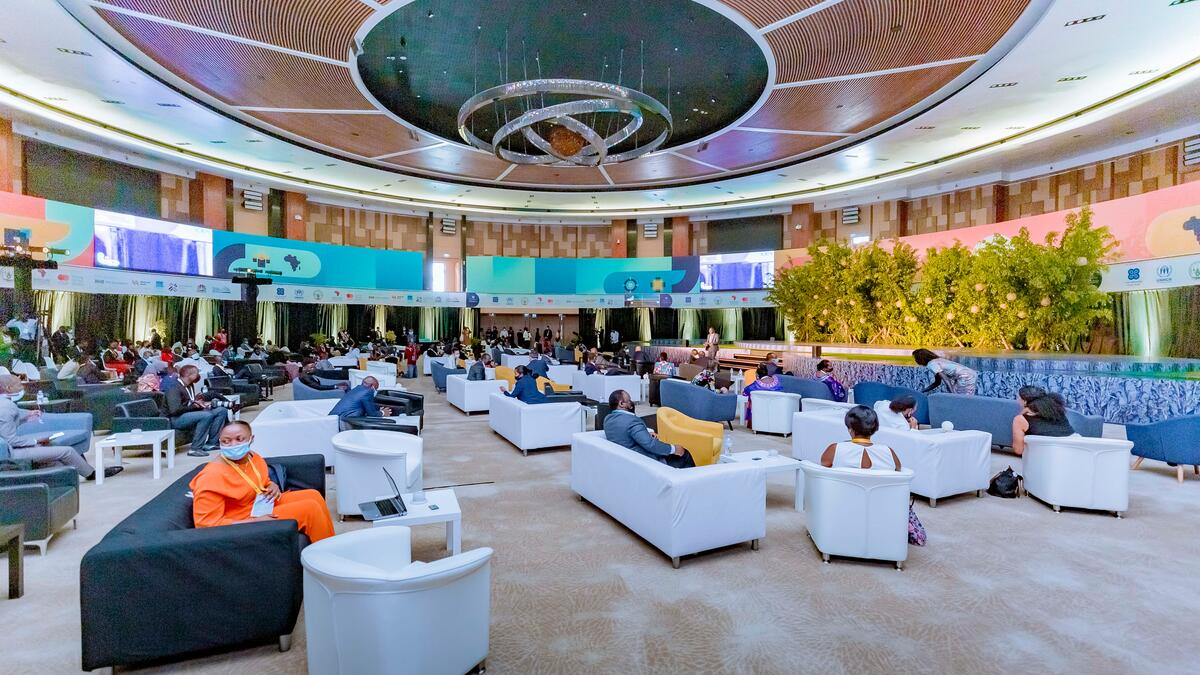
Africa-led solutions: Your turn to make a difference
The 2nd Africa Forum on Displacement: Private Sector Solutions will take place in Accra, Ghana, at the Kempinski Hotel from 1st to 3rd November and will serve as a precursor of Africa’s private sector involvement at the Global Refugee Forum in Geneva, Switzerland, in December 2023.
For this year’s Forum in Ghana, the organizing team comprised of the Amahoro Coalition, UNHCR, the UN Refugee Agency, and Inkomoko are gearing up for not only fruitful private-sector led discussions but also a demonstration of the positive impact Africans have made on African forcibly displaced brothers and sisters – Ubuntu in action.
The three-day Forum will include engaging, inspiring remarks from influential voices, conversations with refugees and displaced person representatives, a market exhibition, evening cocktail events, and Forum formal dinner.
Further, a calendar of activities has been planned during the week of the Forum, including events showcasing African art and music and performances from notable African artists, including UNHCR Goodwill Ambassadors, High Profile Supporters, and LuQuLuQu Champions. Rounding up the week, UNHCR will host a Charity Polo Tournament from 4th to 5th November at the Accra Polo Club.
“Ultimately, not only will the Forum heighten discourse on Africa-led solutions for Africa’s forced displacement crisis, but it will also serve as a social, meaningful, and engaging way to build networks amongst African private sector leaders,” said Isaac Kwaku Fokuo Jr.
For more information and to register your interest in attending the Forum, please visit Africa Forum on Displacement: Private Sector SolutionsLink is external.
Media inquiries:
Amina Rai
Phone: +254 792 339 766
Email: raia@unhcr.org


